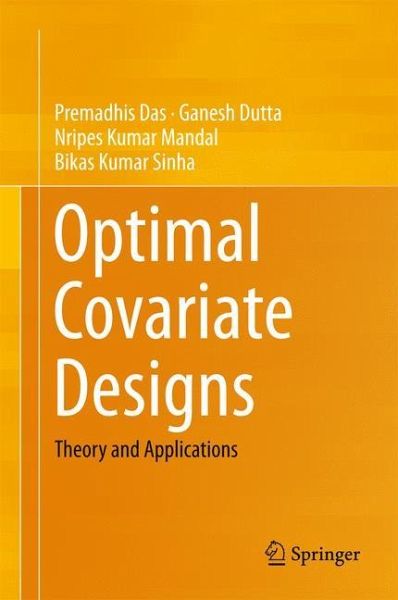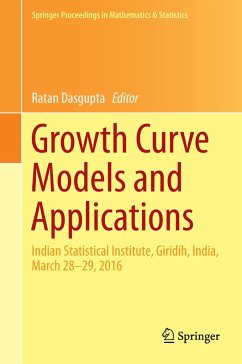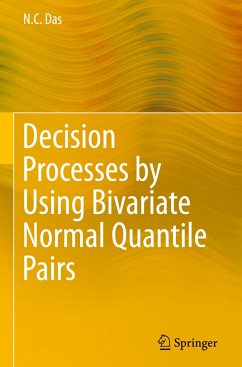
Optimal Covariate Designs
Theory and Applications
Versandkostenfrei!
Versandfertig in 6-10 Tagen
38,99 €
inkl. MwSt.
Weitere Ausgaben:

PAYBACK Punkte
19 °P sammeln!
This book primarily addresses the optimality aspects of covariate designs. A covariate model is a combination of ANOVA and regression models. Optimal estimation of the parameters of the model using a suitable choice of designs is of great importance; as such choices allow experimenters to extract maximum information for the unknown model parameters. The main emphasis of this monograph is to start with an assumed covariate model in combination with some standard ANOVA set-ups such as CRD, RBD, BIBD, GDD, BTIBD, BPEBD, cross-over, multi-factor, split-plot and strip-plot designs, treatment contro...
This book primarily addresses the optimality aspects of covariate designs. A covariate model is a combination of ANOVA and regression models. Optimal estimation of the parameters of the model using a suitable choice of designs is of great importance; as such choices allow experimenters to extract maximum information for the unknown model parameters. The main emphasis of this monograph is to start with an assumed covariate model in combination with some standard ANOVA set-ups such as CRD, RBD, BIBD, GDD, BTIBD, BPEBD, cross-over, multi-factor, split-plot and strip-plot designs, treatment control designs, etc. and discuss the nature and availability of optimal covariate designs. In some situations, optimal estimations of both ANOVA and the regression parameters are provided. Global optimality and D-optimality criteria are mainly used in selecting the design. The standard optimality results of both discrete and continuous set-ups have been adapted, and several novel combinatorial techniques have been applied for the construction of optimum designs using Hadamard matrices, the Kronecker product, Rao-Khatri product, mixed orthogonal arrays to name a few.














